#Microsoft Certified: Azure DevOps Engineer Expert
Text
Key benefits of obtaining the Azure DevOps certification
Azure DevOps is a powerful set of tools and services that can help you collaborate and manage the development of your applications, from planning to deployment. With the Azure DevOps certification, you can demonstrate your expertise in using Azure DevOps to manage code, builds, and releases, and to implement continuous integration and continuous deployment.
The certification exam covers a wide range of topics, including Azure Boards, Azure Repos, Azure Artifacts, Azure Test Plans, and Azure DevOps Server. To prepare for the exam, you can take online courses, attend training sessions, and practice with hands-on labs.
One of the key benefits of obtaining the Azure DevOps certification is that it shows employers that you have the knowledge and skills to help them implement DevOps practices in their organizations. DevOps is a methodology that emphasizes collaboration and communication between development and operations teams, and it is becoming increasingly important as organizations move to cloud-based infrastructure and services.
With the Azure DevOps certification, you will be able to showcase your knowledge and skills in cloud-based development and operations, and you will be in high demand by employers looking for professionals who can help them implement DevOps practices in their organizations.
In addition to the career advancement opportunities, obtaining the Azure DevOps certificationcan also help you stay current with the latest developments in the field and improve your professional credibility. It also can open the door for you to work with other Microsoft Azure services and technologies.
Overall, the Azure DevOps certification is a valuable asset for any IT professional looking to advance their career in cloud-based development and operations. So, if you want to take your career to the next level, don't miss this opportunity and get certified in Azure DevOps today!
#Azure DevOps#Microsoft Azure#Cloud computing#DevOps#Certification#Exam#Microsoft Certified: Azure DevOps Engineer Expert#Azure Boards#Azure Repos#Azure Artifacts#Azure Test Plans#Azure Pipelines#Continuous integration
0 notes
Text
Journey to Devops
The concept of “DevOps” has been gaining traction in the IT sector for a couple of years. It involves promoting teamwork and interaction, between software developers and IT operations groups to enhance the speed and reliability of software delivery. This strategy has become widely accepted as companies strive to provide software to meet customer needs and maintain an edge, in the industry. In this article we will explore the elements of becoming a DevOps Engineer.
Step 1: Get familiar with the basics of Software Development and IT Operations:
In order to pursue a career as a DevOps Engineer it is crucial to possess a grasp of software development and IT operations. Familiarity with programming languages like Python, Java, Ruby or PHP is essential. Additionally, having knowledge about operating systems, databases and networking is vital.
Step 2: Learn the principles of DevOps:
It is crucial to comprehend and apply the principles of DevOps. Automation, continuous integration, continuous deployment and continuous monitoring are aspects that need to be understood and implemented. It is vital to learn how these principles function and how to carry them out efficiently.
Step 3: Familiarize yourself with the DevOps toolchain:
Git: Git, a distributed version control system is extensively utilized by DevOps teams, for code repository management. It aids in monitoring code alterations facilitating collaboration, among team members and preserving a record of modifications made to the codebase.
Ansible: Ansible is an open source tool used for managing configurations deploying applications and automating tasks. It simplifies infrastructure management. Saves time when performing tasks.
Docker: Docker, on the other hand is a platform for containerization that allows DevOps engineers to bundle applications and dependencies into containers. This ensures consistency and compatibility across environments from development, to production.
Kubernetes: Kubernetes is an open-source container orchestration platform that helps manage and scale containers. It helps automate the deployment, scaling, and management of applications and micro-services.
Jenkins: Jenkins is an open-source automation server that helps automate the process of building, testing, and deploying software. It helps to automate repetitive tasks and improve the speed and efficiency of the software delivery process.
Nagios: Nagios is an open-source monitoring tool that helps us monitor the health and performance of our IT infrastructure. It also helps us to identify and resolve issues in real-time and ensure the high availability and reliability of IT systems as well.
Terraform: Terraform is an infrastructure as code (IAC) tool that helps manage and provision IT infrastructure. It helps us automate the process of provisioning and configuring IT resources and ensures consistency between development and production environments.
Step 4: Gain practical experience:
The best way to gain practical experience is by working on real projects and bootcamps. You can start by contributing to open-source projects or participating in coding challenges and hackathons. You can also attend workshops and online courses to improve your skills.
Step 5: Get certified:
Getting certified in DevOps can help you stand out from the crowd and showcase your expertise to various people. Some of the most popular certifications are:
Certified Kubernetes Administrator (CKA)
AWS Certified DevOps Engineer
Microsoft Certified: Azure DevOps Engineer Expert
AWS Certified Cloud Practitioner
Step 6: Build a strong professional network:
Networking is one of the most important parts of becoming a DevOps Engineer. You can join online communities, attend conferences, join webinars and connect with other professionals in the field. This will help you stay up-to-date with the latest developments and also help you find job opportunities and success.
Conclusion:
You can start your journey towards a successful career in DevOps. The most important thing is to be passionate about your work and continuously learn and improve your skills. With the right skills, experience, and network, you can achieve great success in this field and earn valuable experience.
2 notes
·
View notes
Text
Navigating the DevOps Certification Maze: Which Path is Right for You?
In the rapidly evolving world of IT, DevOps has emerged as a crucial practice for bridging the gap between software development and operations. With the growing demand for DevOps skills, numerous certification programs have sprung up, each promising to elevate your career. But with so many options available, how do you choose the right path? In this article, we'll guide you through the DevOps certification maze to help you determine which path is right for you.
Understanding the DevOps Landscape
DevOps is a set of practices that combines software development (Dev) and IT operations (Ops). It aims to shorten the development lifecycle while delivering features, fixes, and updates frequently in close alignment with business objectives. The core principles of DevOps include automation, continuous integration/continuous delivery (CI/CD), monitoring, and collaboration.
Why DevOps Certification Matters
Validation of Skills: Certifications validate your skills and knowledge, making you a more attractive candidate to employers.
Career Advancement: Certified professionals often enjoy better job prospects, higher salaries, and more opportunities for advancement.
Staying Current: The DevOps field is continually evolving. Certifications help you stay up-to-date with the latest tools, technologies, and best practices. Popular DevOps Certifications
Here are some of the most recognized DevOps certifications that can help you advance your career:
AWS Certified DevOps Engineer - Professional
Overview: This certification is designed for individuals who perform a DevOps role with at least two years of experience provisioning, operating, and managing AWS environments.
Key Topics:
Continuous delivery and automation of processes
Monitoring and logging
Security controls and governance
Incident and event response
Why Choose This Path: Ideal for professionals working with AWS who want to deepen their expertise in DevOps practices specific to the AWS platform.
Microsoft Certified: DevOps Engineer Expert
Overview: This certification is aimed at professionals who combine people, processes, and technologies to continuously deliver valuable products and services that meet end-user needs and business objectives.
Key Topics:
Designing a DevOps strategy
Implementing DevOps development processes
Continuous integration and delivery
Dependency management and application infrastructure
Why Choose This Path: Perfect for those working within the Azure ecosystem looking to enhance their DevOps capabilities.
Google Professional DevOps Engineer
Overview: This certification focuses on designing and implementing best practices for building, deploying, and maintaining software solutions on Google Cloud.
Key Topics:
Site reliability engineering principles
Service monitoring and incident management
Continuous delivery and automation
Infrastructure as code
Why Choose This Path: Suitable for IT professionals leveraging Google Cloud who want to demonstrate their expertise in DevOps.
Docker Certified Associate (DCA)
Overview: This certification validates your skills in using Docker, a pivotal technology in the DevOps toolchain.
Key Topics:
Orchestration
Image creation, management, and registry
Installation and configuration
Networking and security
Why Choose This Path: Great for professionals focusing on containerization and looking to certify their Docker knowledge.
Certified Kubernetes Administrator (CKA)
Overview: This certification covers the skills required to be a successful Kubernetes administrator in industry.
Key Topics:
Kubernetes architecture
Installation and configuration
Workloads and scheduling
Services and networking
Why Choose This Path: Ideal for those working with Kubernetes who need to validate their skills in managing Kubernetes clusters.
Choosing the Right Path
When deciding which certification path to pursue, consider the following factors:
Current Role and Experience: Choose a certification that aligns with your current job role and experience level. If you’re already working with a specific cloud provider, a certification from that provider may be more beneficial.
Career Goals: Think about your long-term career objectives. Certain certifications may open doors to specific job roles or industries.
Learning Resources: Evaluate the availability of study materials, courses, and practice exams. Ensure you have access to resources that will help you succeed.
Community and Support: Engaging with a community of professionals pursuing the same certification can provide support, networking opportunities, and insights. Conclusion
Navigating the DevOps certification maze can be daunting, but with the right guidance, you can find a path that aligns with your career goals and professional development needs. Whether you’re looking to deepen your knowledge of a specific cloud platform or master containerization, there’s a certification that can help you achieve your objectives. At Wiculty Learning Solutions, we offer a range of courses and resources to support your journey. Start exploring your options today and take the next step towards a successful DevOps career.
0 notes
Text
Azure Certifications in 2024
Azure Fundamentals
Being certified requires no previous skill sets in Azure for the candidates. First, the Introduction, which tackles the cloud concept basics along with Azure offerings.
Azure Administrator Associate
Such certification consents professionals to implement, maintain, and monitor Azure systems, covering resource management, security, and identity groups.
The aim of Azure Developer Associate is to master designing, building, testing and maintaining cloud-based solutions, e.g. applications and web services, by using the tools and technologies provided by Azure.
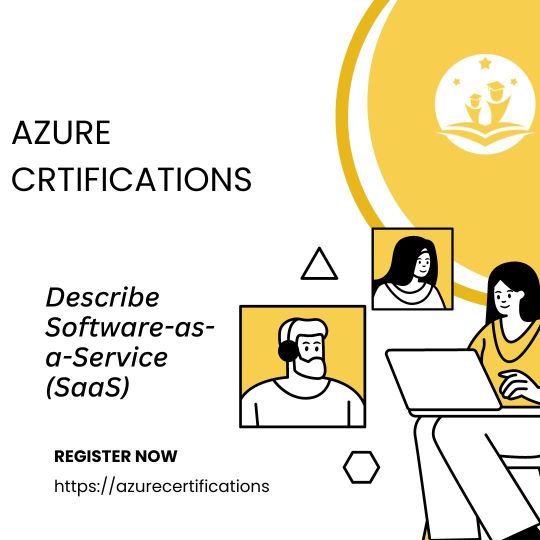
Azure Solutions Architect Expert
This certification is for architects who are interface between stakeholders and meet their requirements by designing a very secure, scalable, and reliable solution. The module addresses the implementation of the systems that reside on Azure.
Earning an Azure DevOps Engineer Expert credential validates the expertise of combining human, process, and technology aspects together into continual value flow that supplies innovative services or products and meets the end-user needs and the business objectives.
Azure Security Engineer Associate
Here the candidate centers with implication of security controls and detections, implementation of identity and access management, and data protection.
Azure AI Engineer Associate
Coverage is provided of natural language processing, computer vision, and conversations with AI on Azure with this certification.
Azure Data Scientist Associate
This credential recognises your proficiency in using various MLops tools on Azure to implement and operate machine learning jobs on Azure.
Azure Data Engineer Associate
The purpose of this certification is to demonstrate the knowledge and skills to design and implement data management, monitoring, security, and privacy tasks using Azure data services.
Azure IoT Developer Specialist
This certification certifies the knowledge base of developers using the services of Azure to implement an IoT Solution, which will enable them to select data for analysis, processing, and storage options as well as configure the platform accordingly.
What is Azure certification?
Azure certification can prove your competence in services of Azure cloud platform offered by Microsoft. It is a proof of your proficiency level in Azure solutions as well as your capacity to design, turn them into implementations, and manage them.
Why do I need my Azure certification to be a skilled Azure professional?
Azure certification on your CV can thus increase your chances of getting into cloud computing career. It renders a sense of accomplishment, which is considered by employers and clients as prerequisites towards higher employee valuation. Furthermore, the sky become the limit and you are welcome to join the list of people certified with Microsoft Azure platform which is one of the leading cloud platforms which can open up many job opportunities.
How does Microsoft Azure certification program classifications look like?
There are several categories of Azure certifications, including:There are several categories of Azure certifications, including:
Fundamentals: Crafted to enable the beginners understanding of basic Azure concepts, but with a simulated environment.
What should I do to prepare before taking my exam in the Azure certification context?
Preparation usually comes in a form of comprehensive mix of self-study, hands-on work, and training classes. Besides that, the company gives study materials (official guides), exam practice, and online training that is carried out on the Microsoft Learn platform. Furthermore, there are a lot of the third-party sources, books, and online courses that you may turn to for getting more hands on experience.
How can I get into the Microsoft Azure credential test?
The Microsoft Certification portal or a certified Certification Training Provider that you can make use of to register for the exams. The first step is registering on the Microsoft Certification profile, and choosing the date and time of your required exam.
1 note
·
View note
Text
Charting Your Path to DevOps Engineering: A Comprehensive Roadmap
1. Grasp the Essential Tenets
Before immersing yourself in the world of DevOps engineering, it's vital to solidify your understanding of fundamental principles and technologies. Familiarize yourself with key components such as version control systems like Git, continuous integration/continuous delivery (CI/CD) pipelines, containerization solutions like Docker, and configuration management tools such as Ansible or Puppet. Additionally, acquaint yourself with the basics of cloud computing services offered by major providers like AWS, Azure, or Google Cloud Platform (GCP), as they serve as the foundation of modern DevOps practices.
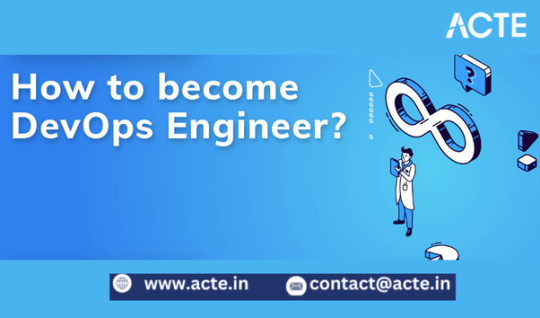
2. Refine Your Automation Skills
Automation forms the backbone of DevOps methodologies. Develop proficiency in scripting languages like Python, Bash, or PowerShell to automate routine tasks and streamline processes. Mastery of infrastructure as code (IaC) principles using tools like Terraform or CloudFormation is also essential for automating the provisioning and management of infrastructure resources. The ability to automate deployment pipelines, monitoring processes, and scalability mechanisms is indispensable for a successful DevOps career.
3. Cultivate Practical Expertise
While theoretical knowledge lays the groundwork, practical experience is paramount in the journey to becoming a DevOps engineer. Engage in personal projects or contribute to open-source endeavors on platforms like GitHub to apply theoretical concepts in real-world scenarios and showcase your capabilities to potential employers. Consider participating in hackathons or joining virtual communities to collaborate with peers and gain hands-on experience in deploying and managing applications.
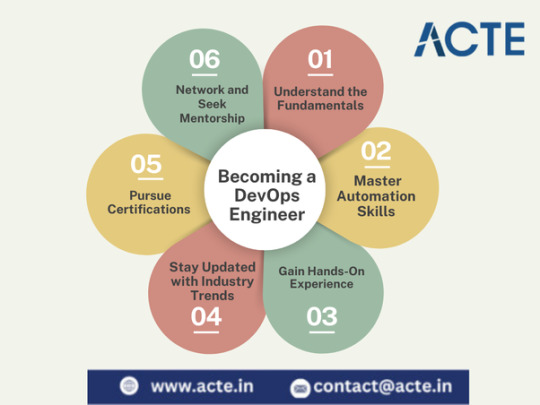
4. Foster Collaboration and Communication
DevOps is as much about people as it is about technology. Cultivate strong interpersonal and communication skills to effectively bridge the gap between development and operations teams. Embrace collaboration, transparency, and empathy to foster strong working relationships with colleagues across different departments.
5. Stay Informed of Industry Trends
The tech landscape evolves rapidly, and staying abreast of the latest trends and advancements is essential for success in DevOps. Keep yourself updated by following industry blogs, attending webinars and conferences, and actively participating in online forums. Continuous learning is key to adapting to emerging technologies and remaining competitive in the job market.
6. Consider Certification Pathways
While not obligatory, certifications can add credibility to your skillset and validate your expertise in DevOps practices. Explore certification options such as AWS Certified DevOps Engineer, Microsoft Certified: Azure DevOps Engineer, or Docker Certified Associate to demonstrate your proficiency in specific platforms and technologies. Certifications signal your commitment to professional development and can enhance your marketability to potential employers.
7. Expand Your Network and Seek Guidance
Networking is instrumental in career advancement, particularly in the DevOps community. Attend industry events, join relevant professional groups, and connect with peers and industry experts on platforms like LinkedIn. Seeking mentorship from experienced DevOps practitioners can provide valuable insights and guidance to navigate your career path effectively.
In Conclusion
Becoming a DevOps engineer requires a blend of technical acumen, practical experience, collaboration, continuous learning, and networking. By mastering automation, understanding core principles, gaining hands-on experience, and staying attuned to industry trends, you can embark on a fulfilling career journey in DevOps engineering. Embrace a growth mindset, remain adaptable, and relentlessly pursue knowledge as you progress toward becoming a proficient DevOps engineer.
0 notes
Text
Can you recommend any certifications or additional training programs to enhance my skills?
Certainly! Here are some additional certifications and training programs that can enhance your skills and complement your pursuit of the AWS DevOps Engineer Professional certification:
AWS Certified Solutions Architect – Professional: This certification focuses on advanced design principles and best practices for building scalable, reliable, and secure AWS solutions. It provides a broader understanding of AWS services and architectures, which can be valuable for DevOps professionals.
AWS Certified SysOps Administrator – Associate: This certification covers operational tasks such as managing, monitoring, and troubleshooting AWS deployments. It provides foundational knowledge of AWS services and administration skills that are relevant to DevOps roles.
Docker Certified Associate (DCA): Docker is widely used for containerization in DevOps environments. The DCA certification validates your Docker skills, including container management, orchestration, networking, and security.
Kubernetes Certifications (CKA, CKAD, CKS): Kubernetes is a popular container orchestration platform used in DevOps for deploying and managing containerized applications. The Certified Kubernetes Administrator (CKA), Certified Kubernetes Application Developer (CKAD), and Certified Kubernetes Security Specialist (CKS) certifications demonstrate proficiency in Kubernetes administration, application development, and security, respectively.
Certified Jenkins Engineer (CJE): Jenkins is a leading open-source automation server used for continuous integration and continuous delivery (CI/CD) pipelines. The CJE certification validates your expertise in Jenkins configuration, administration, and automation for DevOps workflows.
Certified Agile DevOps Professional (CADP): This certification combines Agile principles with DevOps practices, emphasizing collaboration, continuous integration, and delivery. It covers Agile methodologies, DevOps tools, and automation techniques to enhance software development and delivery processes.
Certified ScrumMaster (CSM): Scrum is a widely adopted Agile framework for managing software development projects. The CSM certification equips you with the knowledge and skills to facilitate Agile teams, ceremonies, and processes effectively.
Google Cloud Certifications: If you work with multi-cloud environments or have an interest in Google Cloud Platform (GCP), consider pursuing certifications such as Google Cloud Professional DevOps Engineer or Google Cloud Professional Architect. These certifications validate your proficiency in designing, deploying, and managing cloud-native solutions on GCP.
Microsoft Azure Certifications: Similarly, if you work with Microsoft Azure or hybrid cloud environments, explore certifications like Microsoft Certified: Azure DevOps Engineer Expert or Microsoft Certified: Azure Solutions Architect Expert. These certifications focus on deploying, managing, and optimizing solutions on Azure.
Continuous Learning and Professional Development: In addition to certifications, prioritize continuous learning and professional development by attending conferences, workshops, webinars, and online courses related to DevOps, cloud computing, automation, and emerging technologies. Platforms like Udemy, Coursera, Pluralsight, and LinkedIn Learning offer a wide range of courses on these topics.
Choose certifications and training programs that align with your career goals, interests, and skill level, and invest time and effort in mastering the relevant concepts and technologies. Continuous learning and upskilling are essential for staying competitive and advancing your career in the dynamic field of DevOps and cloud computing.
#online training course#online certification and training#cybersecuritycourse#aws certification#pmp certification cost#pmp training#pmp certification
0 notes
Text
Certification Program for DevOps: A Comprehensive Guide to Unlocking the Future of IT
Introduction:
In today's fast-paced digital landscape, businesses are constantly striving to innovate, scale, and deliver products and services faster than ever before. This need for agility and efficiency has given rise to DevOps, a cultural and professional movement that emphasizes collaboration, automation, and integration between software development and IT operations teams. As organizations embrace DevOps principles, the demand for skilled professionals who can navigate this paradigm shift continues to grow. This is where DevOps certification training courses come into play.
What is the DevOps course?
DevOps course is designed to equip professionals with the knowledge, skills, and tools needed to implement DevOps practices within their organizations successfully. From understanding the fundamental principles of DevOps to mastering advanced techniques in automation and continuous integration/continuous deployment (CI/CD), these courses cover a wide range of topics essential for aspiring DevOps engineers.
DevOps Certification: Why It Matters
In the competitive job market, DevOps certification can give professionals a competitive edge by validating their expertise and commitment to mastering DevOps principles. Employers often look for candidates with recognized certifications, such as:
DevOps Foundation Certification: This certification validates a candidate's understanding of core DevOps principles, terminology, and practices.
AWS Certified DevOps Engineer: Offered by Amazon Web Services (AWS), this certification demonstrates proficiency in implementing and managing DevOps practices on the AWS platform.
Docker Certified Associate: Docker is a popular containerization platform widely used in DevOps environments. This certification validates proficiency in Docker's core concepts and practices.
Certified Kubernetes Developer (CKA): Kubernetes is an open-source container orchestration platform. CKA certification demonstrates expertise in Kubernetes installation, configuration, and management.
Microsoft Certified: Azure DevOps Engineer Expert: This certification validates skills in designing and implementing DevOps practices on Microsoft Azure, including CI/CD pipelines, version control, and infrastructure as code (IaC).
Benefits of DevOps Certification Training Course
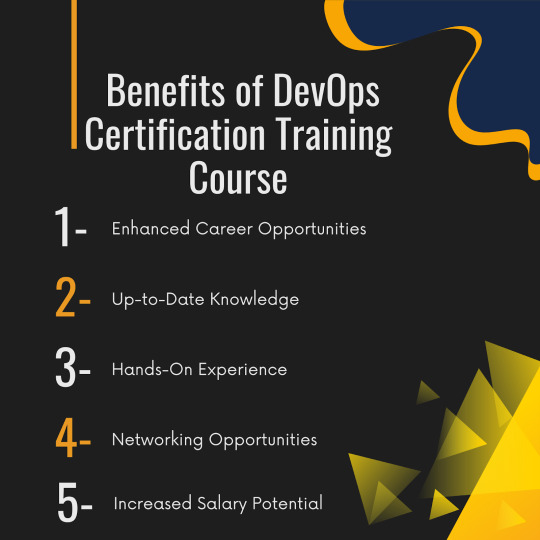
1. Enhanced Career Opportunities:
DevOps professionals are in high demand across industries, ranging from technology and finance to healthcare and retail. By obtaining DevOps certification, individuals can position themselves as sought-after candidates for roles such as DevOps engineer, automation architect, site reliability engineer (SRE), and more.
2. Up-to-date Knowledge:
DevOps certification training courses are continuously updated to reflect the latest trends, tools, and best practices in the industry. By enrolling in a reputable course, professionals can stay ahead of the curve and ensure that their skills remain relevant in a rapidly evolving IT landscape.
3. Hands-On Experience:
Many DevOps certification training programs offer hands-on labs, case studies, and real-world projects that allow participants to apply their learning in practical scenarios. This experiential learning approach not only reinforces theoretical concepts but also helps learners build confidence in their abilities.
4. Networking Opportunities:
Joining a DevOps certification training course provides professionals with the opportunity to connect with peers, industry experts, and potential employers. Networking within the DevOps community can lead to valuable collaborations, mentorship opportunities, and job referrals.
5. Increased Salary Potential:
According to industry reports, DevOps professionals command lucrative salaries compared to their counterparts in traditional IT roles. By investing in DevOps certification training, professionals can position themselves for higher-paying roles and greater earning potential over time.
Choosing the Best DevOps Certification Course
With numerous DevOps certification training courses available both online and in-person, selecting the right one can be challenging. Here are some factors to consider when evaluating different options:
- Accreditation: Look for courses offered by reputable organizations or training providers that are accredited by recognized bodies in the industry.
- Curriculum: Review the course curriculum to ensure that it covers the topics and skills relevant to your career goals. Ideally, the course should include a mix of theoretical knowledge and practical, hands-on experience.
- Instructor Expertise: Check the qualifications and experience of the course instructors. They should have extensive practical experience in DevOps and be able to effectively communicate complex concepts to learners.
- Flexibility: Consider the flexibility of the course in terms of scheduling, delivery format (online, in-person, or hybrid), and access to course materials and resources.
- Reviews and Testimonials: Read reviews and testimonials from past participants to gauge the quality of the course content, instruction, and overall learning experience.
- Cost: While cost is an important factor, it should not be the sole determinant. Evaluate the value provided by the course in terms of the knowledge gained, career advancement opportunities, and return on investment (ROI).
Conclusion:
In conclusion, DevOps certification training courses play a crucial role in preparing professionals for success in today's dynamic IT landscape. Whether you're looking to advance your career, enhance your skills, or stay competitive in the job market, investing in DevOps certification can open doors to exciting opportunities. By carefully selecting the right course and committing to continuous learning and improvement, you can embark on a rewarding journey toward becoming a certified DevOps expert.
0 notes
Text
Innomatics Reviews – Career Tracks, Courses, Learning Mode, Fee, Reviews, Ratings and Feedback

Innomatics Research Labs is a leading institution empowering individuals in the digital realm through advanced training in various fields including IBM Certified Data Science, Machine Learning, Artificial Intelligence (AI), Full Stack Development, Amazon Web Services (AWS), DevOps, Microsoft Azure, Big Data Analytics, and Digital Marketing.
Committed to bridging the gap between theoretical learning and practical application, Innomatics aims to equip individuals with industry-relevant skills to thrive in their careers and drive business growth. Recognized as the Best Training Institute in Hyderabad by Times of India, Innomatics stands out for its hands-on training methodology and dedication to skill development.
Training at Innomatics goes beyond classroom lectures, offering participants opportunities to tackle real-world challenges and gain exposure to actual business scenarios. With a focus on providing hands-on experience and understanding of business case studies, the institution ensures that trainees are industry-ready upon completion of their programs.
As an IBM Certified Training Partner, Innomatics emphasizes not only on teaching algorithms but also on imparting practical knowledge through meetups, workshops, and hackathons. Their specialized placement program further enhances trainees' prospects by connecting them with over 100 businesses seeking skilled professionals to meet their objectives and drive growth.
Innomatics aspires to position India as a hub for analytics and artificial intelligence, catering to professionals across diverse industries including manufacturing, banking, insurance, retail, and healthcare. The institution collaborates with industry experts to demonstrate the benefits of its programs in improving decision-making and fostering innovation.
Founded in 2018, Innomatics has evolved into a premier training facility known for its practical approach and state-of-the-art training techniques. With founders Vishwanath Nyathani and Kalpana Katiki Reddy at the helm, both seasoned IT professionals with extensive experience in the banking and financial services domain, Innomatics is committed to empowering individuals to excel in their careers.
Innomatics offers a range of career tracks including Data Analyst, Machine Learning Engineer, Big Data Analyst, Data Scientist, AI and ML Developer, and Data Engineer. The institution's affiliations with prestigious institutions and companies, coupled with globally recognized certifications, ensure that students receive high-quality training and support to succeed in their careers.
Key features of Innomatics courses include high-quality education delivered by industry experts, practical training with real-life examples, and comprehensive support for career advancement. The institution's website provides detailed information about courses, certifications, and placement assistance, along with blogs and resources to keep students informed about industry developments.
Innomatics' Data Science Program, endorsed by IBM, offers a comprehensive curriculum covering Python, Data Analysis, Statistics, SQL, Machine Learning, Deep Learning, Computer Vision, and Natural Language Processing. With flexible training options and extensive practical training, the program equips students with the skills and knowledge required to excel in the field.
In conclusion, Innomatics Research Labs is a trusted institution that provides high-quality training and support to individuals pursuing careers in data analytics and machine learning. While some courses may require higher fees and technical knowledge, the institution's commitment to excellence ensures that students are well-prepared for success in the industry.
1 note
·
View note
Text
How to Get the Most Out of Your DevOps Certification
In the rapidly evolving landscape of technology, DevOps has emerged as a crucial methodology to enhance collaboration and efficiency in software development and IT operations. As organizations increasingly prioritize DevOps practices, obtaining a DevOps certification becomes a valuable asset for professionals seeking to advance their careers. However, simply acquiring the certification is not enough; to truly reap the benefits, individuals must take strategic steps to maximize its value. In this blog, we'll explore how you can get the most out of your DevOps certification.
DevOps training in Hyderabad Where traditional boundaries fade, and a unified approach to development and operations emerges.
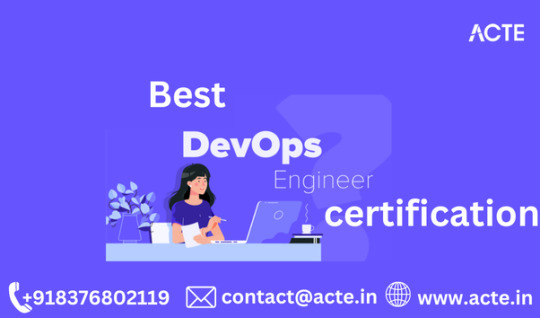
Understanding the Certification Landscape
1. Recognizing the Need for Certification
In the dynamic field of DevOps, certifications validate your skills and enhance your marketability.
Choosing the right certification depends on your career goals and the skills you want to acquire.
2. AWS Certified DevOps Engineer
Why AWS?AWS dominates the cloud computing space, and this certification focuses on DevOps practices within the AWS ecosystem. Ideal for professionals working extensively with AWS services.
3. Docker Certified Associate
Mastering ContainerizationDocker is pivotal in DevOps for containerization. This certification proves your proficiency in Docker and container orchestration. Suitable for those working on containerized applications.
4. Microsoft Certified: Azure DevOps Engineer Expert
Azure-Centric ExpertiseTailored for those working with Microsoft Azure, this certification emphasizes DevOps practices specific to the Azure platform. A valuable certification for organizations leveraging Azure services.
5. Red Hat Certified Engineer in DevOps
Open-Source ExcellenceIdeal for those inclined towards open-source technologies, especially Red Hat Linux.Focuses on DevOps principles within the Red Hat ecosystem.
6. Consider Your Career Path
Assess Your EnvironmentConsider the cloud platform or tools predominantly used in your workplace. Align your certification choice with the technologies relevant to your current or desired job role. Elevate your career prospects with our DevOps online course – because learning isn’t confined to classrooms, it happens where you are
7. Personalize Your Learning Path
Tailor Certifications to Your GoalsDevOps is diverse; your certification should align with your career goals. If your organization heavily uses AWS, the AWS Certified DevOps Engineer might be your best bet.
8. Keep Evolving
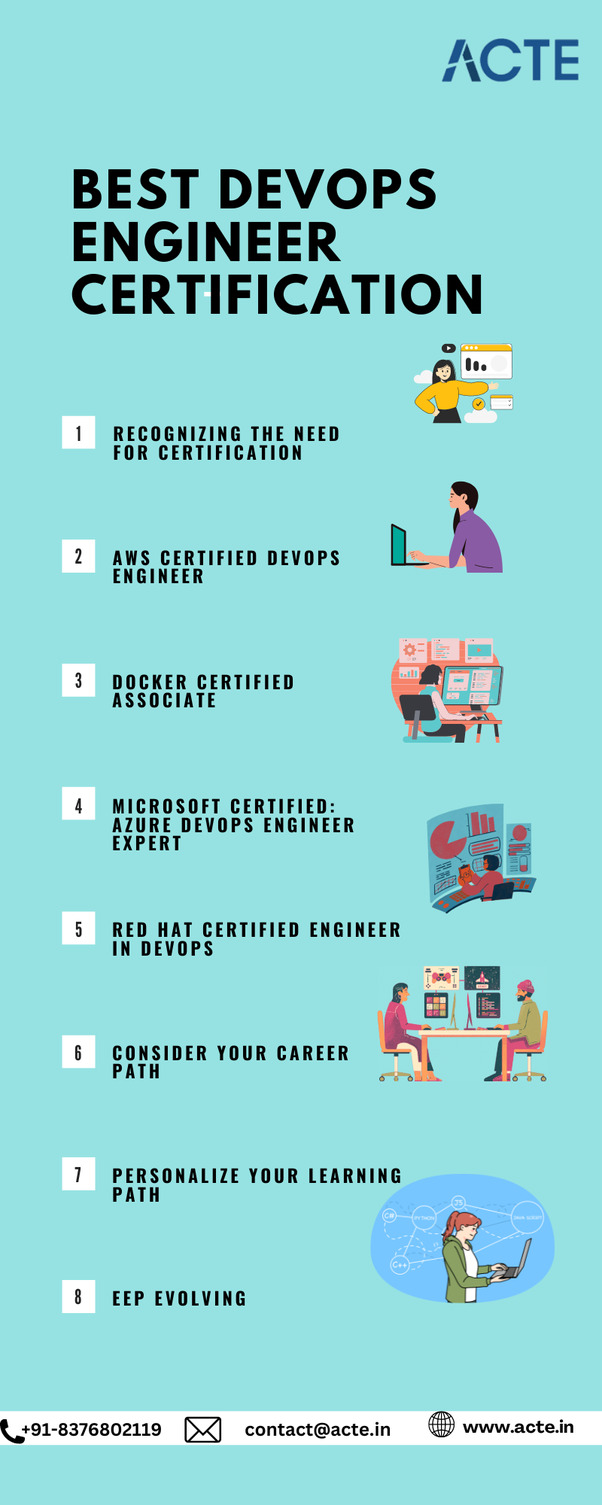
DevOps is DynamicThe best certification today might evolve tomorrow. Stay updated on emerging technologies and adapt your certifications accordingly. Continuous learning is a hallmark of a successful DevOps engineer.
Earning a DevOps certification is a commendable achievement, but its true value lies in how you leverage it to enhance your skills, contribute to your organization, and advance your career. By understanding core concepts, gaining hands-on experience, staying updated, engaging with the community, applying DevOps practices, seeking feedback, and documenting your achievements, you can maximize the benefits of your DevOps certification and position yourself as a valuable asset in the ever-evolving world of technology.
0 notes
Text
Advanced DevOps Certifications: Taking Your Skills to the Next Level
In today's rapidly evolving tech landscape, staying ahead requires more than just foundational knowledge. As organizations increasingly adopt DevOps practices to streamline their development and operations, professionals with advanced DevOps certifications are in high demand. These certifications not only validate your skills but also demonstrate your commitment to continuous learning and improvement. In this article, we’ll explore the significance of advanced DevOps certifications and highlight some of the top certifications that can elevate your career to new heights.
The Importance of Advanced DevOps Certifications
DevOps, a combination of "development" and "operations," focuses on integrating and automating the work of software development and IT operations as a means to improve and shorten the systems development life cycle. While basic DevOps skills are essential, advanced certifications offer several key benefits:
Competitive Edge: In a crowded job market, advanced certifications can distinguish you from other candidates by showcasing your expertise and dedication.
Higher Earning Potential: Certified professionals often command higher salaries due to their specialized skills and knowledge.
Updated Knowledge: Advanced certifications ensure you are up-to-date with the latest tools, practices, and technologies in the DevOps ecosystem.
Career Advancement: These certifications can open doors to senior roles such as DevOps Engineer, Cloud Architect, and Site Reliability Engineer.
Top Advanced DevOps Certifications
Certified Kubernetes Administrator (CKA) Kubernetes has become the de facto standard for container orchestration. The CKA certification, offered by the Cloud Native Computing Foundation (CNCF), validates your skills in deploying, managing, and troubleshooting Kubernetes clusters. This certification is ideal for those looking to specialize in container management and orchestration.
AWS Certified DevOps Engineer – Professional Amazon Web Services (AWS) is a leading cloud service provider, and their DevOps Engineer – Professional certification is designed for those with extensive experience in both AWS and DevOps practices. This certification covers a range of topics, including continuous delivery, automation of security controls, governance processes, and more.
Google Cloud Professional DevOps Engineer For professionals working with Google Cloud Platform (GCP), the Professional DevOps Engineer certification demonstrates your ability to efficiently develop operations that balance service reliability and delivery speed. It covers subjects such as cloud infrastructure, monitoring, and optimization of service performance.
Microsoft Certified: DevOps Engineer Expert This certification is tailored for those working with Microsoft Azure. It validates your expertise in combining people, processes, and technologies to deliver valuable products and services that meet end-user needs and business objectives. The certification focuses on implementing strategies for continuous integration, delivery, and feedback.
HashiCorp Certified: Terraform Associate Terraform, an open-source tool by HashiCorp, is widely used for infrastructure as code (IaC). The Terraform Associate certification is for cloud engineers who specialize in operations and the provisioning of cloud resources. It demonstrates your proficiency in using Terraform to manage infrastructure.
Preparing for Advanced DevOps Certifications
Achieving an advanced DevOps certification requires a strategic approach:
Hands-on Experience: Practical experience is crucial. Work on real-world projects that allow you to apply DevOps principles and tools.
Study Resources: Utilize official study guides, online courses, and practice exams. Many certification bodies offer extensive resources to help candidates prepare.
Join Communities: Engage with DevOps communities and forums. Sharing knowledge and experiences with peers can provide valuable insights and tips.
Continuous Learning: The DevOps field is always evolving. Stay informed about the latest trends, tools, and best practices through continuous learning.
Conclusion
Advanced DevOps certifications are a testament to your expertise and commitment to the field. They offer numerous benefits, including career advancement, higher earning potential, and the ability to stay current with the latest industry trends. By pursuing certifications such as CKA, AWS Certified DevOps Engineer – Professional, and others, you can take your DevOps skills to the next level and become a valuable asset to any organization. Embrace the journey of continuous improvement and watch your career soar to new heights.
0 notes
Text
Unlocking Opportunities in Cloud Computing Courses in Hyderabad

In recent years, cloud computing has emerged as a transformative technology, revolutionizing the way businesses operate and deliver services. With its scalability, flexibility, and cost-effectiveness, cloud computing has become a cornerstone of digital transformation initiatives across industries. In Hyderabad, a thriving hub of technology and innovation, the demand for skilled cloud computing professionals is skyrocketing. As a result, there has been a surge in the availability of cloud computing courses, offering individuals the opportunity to acquire in-demand skills and unlock lucrative career opportunities in this dynamic field.
Rising Demand for Cloud Computing Professionals
Hyderabad, often referred to as "Cyberabad" due to its vibrant IT ecosystem, is home to a diverse array of technology companies, ranging from startups to multinational corporations. As these organizations increasingly migrate their infrastructure and applications to the cloud, there is a growing demand for professionals with expertise in cloud computing technologies. From cloud architects and engineers to cloud administrators and developers, skilled professionals who understand how to design, deploy, and manage cloud-based solutions are in high demand across the city.
Diverse Range of Cloud Computing Courses
Recognizing the burgeoning demand for cloud computing skills, educational institutions and training providers in Hyderabad have rolled out a diverse range of cloud computing courses catering to individuals at various stages of their careers. These courses cover a wide spectrum of topics, including cloud fundamentals, infrastructure as a service (IaaS), platform as a service (PaaS), software as a service (SaaS), cloud security, and more. Whether you're a novice looking to enter the field or an experienced IT professional seeking to upskill, there's a course tailored to your needs and aspirations.
Hands-On Learning and Certification Preparation
One of the hallmarks of cloud computing courses in Hyderabad is their emphasis on hands-on learning and practical experience. Many courses offer lab-based exercises, real-world projects, and case studies that allow students to gain practical experience working with cloud platforms such as Amazon Web Services (AWS), Microsoft Azure, and Google Cloud Platform (GCP). Additionally, several courses prepare students for industry-recognized certifications, such as AWS Certified Solutions Architect, Microsoft Certified Azure Administrator, and Google Cloud Certified Professional Cloud Architect, enhancing their employability and marketability in the job market.
Career Pathways in Cloud Computing
The completion of a cloud computing course opens up a plethora of career pathways for individuals in Hyderabad's thriving tech industry. Graduates of these courses may pursue roles such as cloud architect, cloud engineer, cloud administrator, DevOps engineer, solutions architect, or cloud security specialist, among others. These roles offer competitive salaries, opportunities for advancement, and the chance to work on cutting-edge projects for leading organizations in Hyderabad and beyond.
Industry-Relevant Curriculum and Networking Opportunities
Cloud computing courses in Hyderabad are designed to equip students with the skills and knowledge needed to excel in today's rapidly evolving tech landscape. The curriculum is often developed in collaboration with industry experts and reflects the latest trends, best practices, and emerging technologies in cloud computing. Moreover, many courses provide networking opportunities with industry professionals, guest lectures, and career counseling sessions, allowing students to connect with potential employers and mentors in the field.
Conclusion
In conclusion, cloud computing courses in Hyderabad represent a gateway to exciting career opportunities in one of the fastest-growing sectors of the technology industry. By acquiring skills in cloud computing, individuals can position themselves for success in a competitive job market and contribute to the digital transformation efforts of organizations across various industries. Whether you're a recent graduate, a mid-career professional, or an aspiring technologist, investing in a cloud computing course in Hyderabad can be a transformative step towards achieving your career goals and unlocking a world of opportunities in the dynamic realm of cloud computing.
0 notes
Text
introducing our latest product azure certification 2023-24
Azure Certifications in today's rapidly evolving technological landscape, staying competitive in the digital sphere requires professionals to continually upskill and validate their expertise. Cloud computing, especially Microsoft Azure, has emerged as a pivotal technology, empowering businesses to scale, innovate, and transform digitally. The Azure Certification program equips individuals with the necessary skills and knowledge to navigate and excel in this dynamic domain.
What is Azure Certification?
Azure Certification refers to Microsoft's comprehensive program designed to validate and recognize individuals' proficiency in Microsoft Azure technologies. This certification is a testament to an individual's expertise in deploying, managing, and securing Azure solutions, making them invaluable assets to organizations seeking to leverage cloud technology effectively.
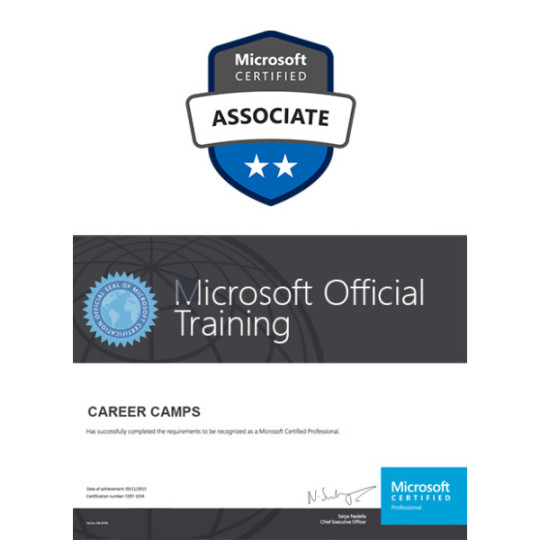
Importance of Azure Certification:
In today's competitive job market, possessing Azure Certification offers numerous advantages. Companies prioritize candidates with validated Azure skills, as these professionals can help drive organizational success by efficiently utilizing Azure's vast array of tools and services. Azure Certification not only enhances job prospects but also signifies a commitment to ongoing learning and professional growth.
Overview of Azure Certification 2023-24:
The Azure Certification 2023-24 has been meticulously crafted to align with the latest advancements and best practices in Azure technology. This iteration aims to equip professionals with cutting-edge skills to address modern business challenges effectively. The certification tracks available in 2023-24 include:
Fundamental Level Certifications:
Azure Fundamentals (AZ-900)
Role-based Certifications:
Azure Administrator Associate (AZ-104)
Azure Developer Associate (AZ-204)
Azure Solutions Architect Expert (AZ-303 and AZ-304)
Azure DevOps Engineer Expert (AZ-400)
Azure Security Engineer Associate (AZ-500)
Azure AI Engineer Associate (AI-102)
Specialty Certifications:
Azure for SAP Workloads Specialty (AZ-120)
Azure IoT Developer Specialty (AZ-220)
Azure Data Scientist Associate (DP-100)
Each certification track is meticulously designed to cater to specific job roles and expertise levels, ensuring professionals can validate their skills according to their career aspirations and organizational requirements.
Benefits of Azure Certification 2023-24:
Enhanced Career Prospects:
Professionals holding Azure Certifications are highly sought after by employers seeking skilled individuals capable of leveraging Azure's capabilities effectively. These certifications open doors to a myriad of job opportunities and career advancements.
Validation of Expertise:
Earning an Azure Certification demonstrates a thorough understanding of Azure technologies, validating an individual's expertise and commitment to staying updated with the latest industry trends.
Increased Earning Potential:
Certified Azure professionals often command higher salaries than their non-certified counterparts. Employers recognize the value of certified individuals and are willing to offer competitive compensation for their expertise.
Access to Exclusive Resources:
Azure Certification holders gain access to a network of professionals, exclusive resources, and continuous learning opportunities through Microsoft's certification community, enabling ongoing skill enhancement and networking.

How to Obtain Azure Certification 2023-24:
Acquiring an Azure Certification involves specific steps tailored to each certification track. However, the general process typically includes:
Selecting the Desired Certification: Choose the certification track aligned with your career goals and expertise level.
Preparing for the Exam: Utilize various study materials such as official Microsoft learning paths, practice exams, online courses, and hands-on experience through Azure services.
Registering for the Exam: Schedule and register for the certification exam through the Microsoft certification website.
Taking the Exam: On the scheduled date, take the exam at an authorized testing center or opt for online proctored exams.
Achieving Certification: Upon passing the exam, receive the official Azure Certification, showcasing your proficiency in Azure technologies.
FAQs:
Are there any prerequisites for Azure Certification exams?
Prerequisites vary based on the certification track. Some certifications might require prior experience or related certifications, while others are open to beginners.
How long does an Azure Certification remain valid?
Azure Certifications are valid for two years. Recertification or earning a higher-level certification is necessary to maintain certification status.
Can I retake the exam if I don't pass on my first attempt?
Yes, candidates can retake the exam. However, there might be waiting periods and additional fees for reattempting.
Conclusion:
The Azure Certification 2023-24 offers an unparalleled opportunity for professionals to validate their Azure skills, enhance their career prospects, and contribute significantly to their organizations' success in an increasingly cloud-centric world. Embrace the power of Azure Certification and pave the way for a thriving career in cloud computing.
1 note
·
View note
Text
Empowering Minds: A Comprehensive List of Software Courses
In today's digital era, the software industry is the driving force behind innovation and technological advancement. Whether you're an aspiring software developer or an established IT professional, staying updated with the latest technologies and skills is crucial to succeed in this ever-evolving field. Fortunately, there is a multitude of software courses available that cater to various interests and skill levels. In this article, we'll explore a comprehensive list of software courses that can help you chart a successful career path in the tech industry.
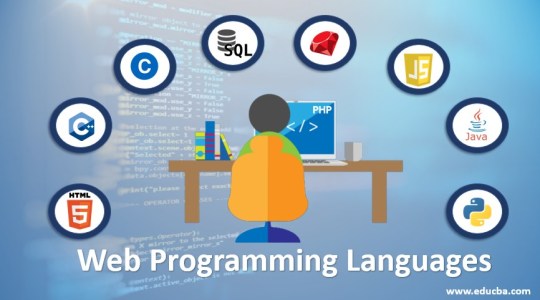
1. Programming Fundamentals:
Introduction to Programming: Begin your journey by understanding programming logic, data types, and problem-solving techniques.
Python Programming: Known for its simplicity and versatility, Python is an excellent choice for beginners.
2. Web Development:
HTML and CSS: Learn the basics of web page structure and design.
JavaScript: Dive into the world of interactive web development.
Full-Stack Development: Master both front-end and back-end development for comprehensive web expertise.
3. Mobile App Development:
iOS App Development (Swift): Create applications for Apple devices.
Android App Development (Java/Kotlin): Develop apps for the Android platform.
4. Data Science and Analytics:
Data Analysis with Python: Analyze and visualize data using Python.
Machine Learning: Understand and implement machine learning algorithms.
Big Data Technologies (Hadoop, Spark): Handle and process large datasets.
5. Cybersecurity:
Certified Ethical Hacker (CEH): Learn ethical hacking techniques.
Certified Information Systems Security Professional (CISSP): Become a certified information security expert.
6. Cloud Computing:
Amazon Web Services (AWS): Master cloud infrastructure and services.
Microsoft Azure: Gain expertise in Microsoft's cloud platform.
Google Cloud Platform (GCP): Learn GCP's cloud offerings.
7. DevOps:
Docker and Kubernetes: Explore containerization and orchestration.
Continuous Integration/Continuous Deployment (CI/CD): Automate software delivery pipelines.
8. Artificial Intelligence and Machine Learning:
Deep Learning with TensorFlow and PyTorch: Delve into neural networks and deep learning.
Natural Language Processing (NLP): Focus on text and language processing.
9. Game Development:
Unity 3D: Create 2D and 3D games for various platforms.
Unreal Engine: Develop high-quality, immersive games.
10. Blockchain Technology:
markdownCopy code
- **Blockchain Development:** Understand the principles of blockchain and create decentralized applications (DApps).
11. Database Management:
markdownCopy code
- **SQL and Relational Databases:** Learn to work with structured data. - **NoSQL Databases (MongoDB, Cassandra):** Handle unstructured data efficiently.
12. UI/UX Design:
sqlCopy code
- **User Interface (UI) Design:** Create visually appealing and user-friendly interfaces. - **User Experience (UX) Design:** Enhance user satisfaction and usability.
13. Software Testing and Quality Assurance:
markdownCopy code
- **Manual and Automated Testing:** Ensure software reliability and functionality. - **Selenium:** Automate web application testing.
14. Project Management:
markdownCopy code
- **Certified ScrumMaster (CSM):** Understand Agile methodologies. - **Project Management Professional (PMP):** Learn best practices in project management.
15. IoT (Internet of Things):
markdownCopy code
- **IoT Development:** Create applications for IoT devices and systems. - **IoT Security:** Secure IoT networks and devices.
16. Quantum Computing:
markdownCopy code
- **Quantum Programming:** Explore quantum algorithms and computing.
These software courses offer a diverse array of opportunities for individuals to enhance their skill sets and pursue rewarding careers in technology. Whether you are a novice taking your first steps into the world of coding or a seasoned developer looking to specialize in a niche field, there is a course tailored to meet your needs. Continuous learning is not just a choice but a necessity in the tech industry, and staying current with the latest software trends can open doors to exciting career opportunities. So, choose your path, enroll in the right course, and embark on your journey to becoming a software expert in this fast-paced digital age.
youtube
Also Read : Seasoned Developer
SITES WE SUPPORT - AWS Software Courses - Blogger
SOCIAL LINKS
Facebook
Twitter
LinkedIn
Instagram
YouTube
1 note
·
View note
Text
Which courses are best for cloud computing?

The Best cloud computing courses for cloud computing depend on your current knowledge, career goals, and the specific cloud platform or service you want to focus on. Here are some of the top courses and certification programs in cloud computing offered by major cloud providers and reputable institutions:
Amazon Web Services (AWS)
AWS Certified Solutions Architect - Associate: This certification is ideal for individuals who want to design and deploy scalable and fault-tolerant systems on AWS.
AWS Certified DevOps Engineer - Professional: Suitable for professionals interested in automation, continuous integration, and continuous delivery (CI/CD) on AWS.
AWS Certified SysOps Administrator - Associate: Focused on system administration and operations on AWS.
Microsoft Azure
Microsoft Certified: Azure Administrator Associate: Designed for those who want to manage Azure resources, implement security, and maintain governance.
Microsoft Certified: Azure Solutions Architect Expert: Ideal for individuals aiming to design and implement Azure solutions.
Microsoft Certified: Azure DevOps Engineer Expert: Geared toward professionals interested in Azure DevOps practices.
Google Cloud Platform (GCP)
Google Cloud Professional Cloud Architect: This certification focuses on designing and managing Google Cloud solutions.
Google Cloud Professional Data Engineer: Designed for those interested in data engineering on Google Cloud.
Google Cloud Professional DevOps Engineer: For professionals looking to implement CI/CD pipelines and automation on GCP.
Certified Cloud Security Professional (CCSP): This certification is offered by (ISC)² and is ideal for those interested in cloud security. It covers cloud architecture, governance, risk management, and compliance.
Certified Cloud Practitioner: Offered by AWS, this entry-level certification is suitable for individuals new to cloud computing who want to gain a foundational understanding of AWS.
CompTIA Cloud+: This vendor-neutral certification covers a broad range of cloud-related topics, making it a good choice for those seeking a well-rounded understanding of cloud computing.
0 notes
Text
Unlocking the Path to Success: How to Get Hired as a DevOps Engineer as a Fresher
Entering the competitive field of DevOps as a fresher can be both challenging and exciting. With the increasing demand for skilled DevOps engineers, there are ample opportunities for those who are well-prepared and dedicated. In this blog post, we'll explore the key steps to help you secure a DevOps engineer position right out of college.
Understand the Basics of DevOps: Before diving into the job market, it's crucial to have a solid understanding of what DevOps is. DevOps is not just a set of tools but a culture that emphasizes collaboration, communication, and integration between software development and IT operations. Familiarize yourself with core DevOps principles, methodologies, and practices.
Acquire Relevant Skills: DevOps is a multidisciplinary field that requires a combination of skills from development and operations. As a fresher, focus on acquiring the following skills:
Version control (e.g., Git)
Continuous Integration/Continuous Deployment (CI/CD) tools (e.g., Jenkins)
Containerization tools (e.g., Docker)
Infrastructure as Code (IaC) (e.g., Terraform)
Scripting languages (e.g., Python, Bash)
Configuration Management tools (e.g., Ansible, Puppet)
Build a Strong Foundation in Cloud Technologies: DevOps and cloud technologies go hand in hand. Familiarize yourself with popular cloud platforms such as AWS, Azure, or Google Cloud. Many organizations are adopting cloud services for scalability, flexibility, and cost-efficiency, so having cloud expertise is a significant advantage.
Create a Compelling Portfolio: Develop a portfolio showcasing your projects, achievements, and the skills you've acquired. Include any relevant internships, personal projects, or contributions to open-source projects. This will serve as tangible evidence of your capabilities and passion for DevOps.
Networking and Online Presence: Attend meetups, webinars, and conferences related to DevOps. Connect with professionals in the industry on platforms like LinkedIn and GitHub. Engage in discussions, share your projects, and seek guidance. Building a strong online presence can catch the attention of recruiters and hiring managers.
Certifications: Consider pursuing relevant certifications to validate your skills. Certifications from recognized bodies, such as AWS Certified DevOps Engineer, Docker Certified Associate, or Microsoft Certified: Azure DevOps Engineer Expert, can enhance your credibility.
Tailor Your Resume: Customize your resume to highlight your DevOps skills, projects, and any relevant experience. Use action verbs to describe your achievements and responsibilities. Emphasize your ability to work collaboratively, problem-solving skills, and commitment to continuous improvement.
Prepare for Technical Interviews: Be ready to demonstrate your technical skills in interviews. Practice common DevOps interview questions, problem-solving exercises, and be able to articulate your thought process. Showcase your ability to troubleshoot, automate processes, and optimize workflows.
Showcase Soft Skills: DevOps is not just about technical skills; soft skills are equally important. Highlight your communication skills, adaptability, teamwork, and problem-solving abilities. Employers are looking for candidates who can thrive in a collaborative and fast-paced environment.
Stay Updated and Keep Learning: The world of DevOps is dynamic, with new tools and practices emerging regularly. Stay informed about industry trends, attend workshops, and continuously expand your skill set to stay competitive in the job market.
Conclusion:
Securing a DevOps engineer position as a fresher requires a combination of technical skills, continuous learning, networking, and a strong online presence. By following the steps outlined above and staying dedicated to your professional development, you'll be well on your way to unlocking the path to success in the dynamic world of DevOps. Good luck!
Getting a job as a DevOps engineer as a fresher can seem like a daunting task, but with the right approach and preparation, it is definitely achievable. In this answer, I will provide some valuable tips and insights on how you can increase your chances of landing a job in the exciting field of DevOps.Equip your team with the skills to automate, integrate, and innovate – that's the essence of DevOps training in Hyderabad
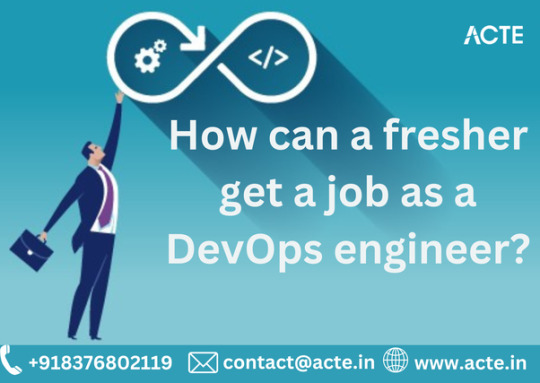
Gain the necessary technical skills: As a fresher, it's important to have a solid foundation in the technical skills required for a DevOps engineer. These skills typically include knowledge of scripting languages like Python or Bash, experience with tools like Git and Jenkins, and an understanding of cloud computing platforms such as AWS or Azure. Invest time in learning these technologies through online courses, tutorials, or even pursuing a relevant certification.
Build a strong foundation in software development: DevOps engineers are responsible for bridging the gap between development and operations. Having a good understanding of software development practices and methodologies will greatly enhance your ability to perform this role effectively. Familiarize yourself with Agile methodologies, version control systems, and software development lifecycle processes.
Gain practical experience through internships and projects: While theoretical knowledge is essential, practical experience is equally important. Look for internships or entry-level positions that can give you hands-on experience in DevOps-related tasks. If you don't have any opportunities available, consider working on personal projects or contributing to open-source projects. This will not only demonstrate your skills but also showcase your passion and dedication to potential employers."No commute, no hassle – just pure DevOps learning. Enrol in our Devops online course and redefine your understanding of seamless software development."
Networking is key: Building relationships with professionals already working in the DevOps field can be invaluable. Attend tech conferences, meetups, and workshops where you can meet industry experts and like-minded individuals. Join online communities and forums where you can engage in discussions and gain insights from experienced professionals. Networking can open doors to job opportunities that might not be advertised publicly.
Customize your resume and cover letter: Tailor your resume and cover letter to highlight your relevant skills, projects, and experiences. Emphasize your knowledge of DevOps tools, your ability to work in cross-functional teams and any experience you have with automation and continuous integration/continuous deployment (CI/CD) pipelines. Be sure to quantify your achievements wherever possible.
Prepare for interviews: Research commonly asked interview questions for DevOps engineer roles and prepare concise yet detailed responses. Be prepared to discuss your understanding of DevOps principles, your experience with various tools and technologies, and how you've contributed to previous projects or teams. Brush up on your problem-solving skills and be ready to demonstrate your ability to troubleshoot and solve technical challenges.
Continuous learning: The field of DevOps is constantly evolving, so it's important to stay up-to-date with the latest trends and technologies. Subscribe to industry blogs, follow thought leaders on social media platforms, and join online communities where you can continue learning from others in the field.
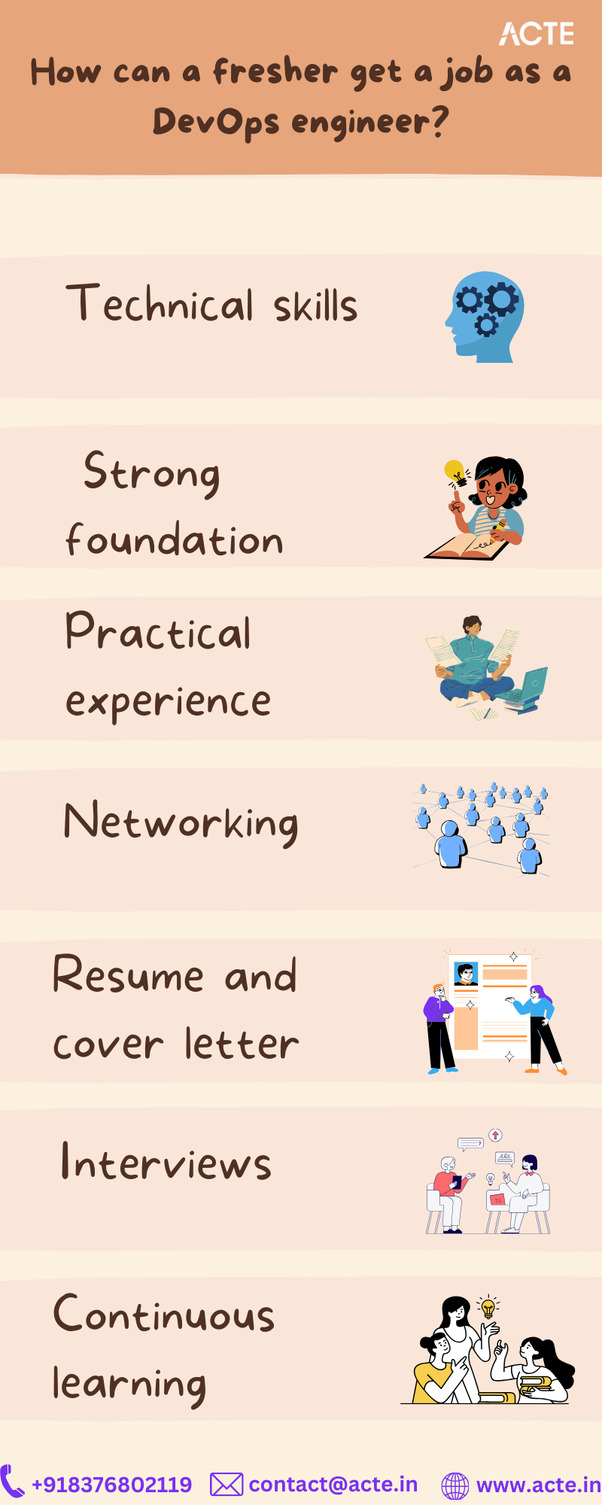
Securing a DevOps engineer position as a fresher requires a combination of technical skills, continuous learning, networking, and a strong online presence. By following the steps outlined above and staying dedicated to your professional development, you'll be well on your way to unlocking the path to success in the dynamic world of DevOps. Good luck!
0 notes
Text
AZ-104: Microsoft Azure Administrator
Los candidatos a la certificación de Asociado Administrador de Azure deben tener experiencia en la materia, implementar, administrar y supervisar el entorno Microsoft Azure de una organización. AZ-104: Microsoft Azure Administrator
Las responsabilidades para este rol incluyen implementar, administrar y supervisar la identidad, gobernanza, almacenamiento, procesos y redes virtuales en un entorno de nube, más provisión, tamaño, supervisión y ajuste de recursos, cuando sea necesario.
Un administrador de Azure suele formar parte de un equipo más amplio dedicado a implementar la infraestructura en la nube de una organización. Microsoft Certified: Azure DevOps Engineer Expert
Un candidato para esta certificación debe tener al menos seis meses de experiencia práctica en la administración de Azure, junto con una sólida comprensión de los servicios centrales de Azure, las cargas de trabajo de Azure, la seguridad y el gobierno. Además, este rol debe tener experiencia en el uso de PowerShell, la CLI de Azure, el portal de Azure y las plantillas de Azure Resource Manager.
0 notes